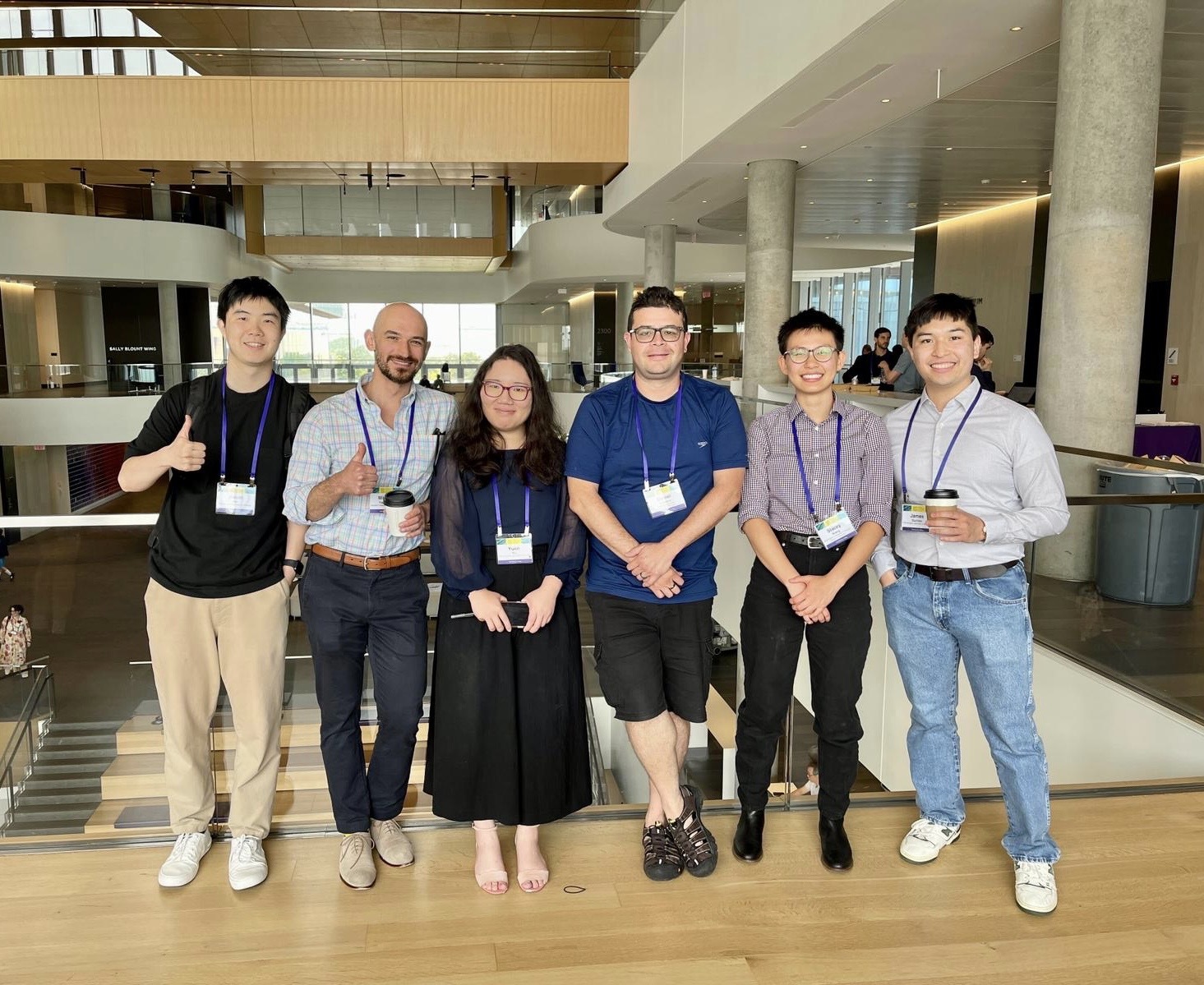Page Not Found
Page not found. Your pixels are in another canvas.
A list of all the posts and pages found on the site. For you robots out there is an XML version available for digesting as well.
Page not found. Your pixels are in another canvas.
Published in SocArXiv (R&R at Science), 2024
Preprint We study how geographical diversity among research evaluators affects the success of research producers. If evaluators favor work from their own countries (homophily), then producers from countries well-represented in the evaluator pool will benefit from homophily more often (differential access to homophily), resulting in a “geographical representation bias.” We test if this bias exists in science publishing using peer review data on 205K submissions to 60 journals published by the Institute of Physics Publishing. We find evidence of both homophily and differential access to homophily. Reviewers from the same country as the corresponding author are 4.78 percentage points more likely to review positively compared to other reviewers of the same manuscript. Authors from countries well-represented in the reviewer pool (e.g. USA, China, India) are 8-9 times more likely to be evaluated by same-country reviewers and benefit from homophily. Exploiting a policy shock that led to some papers being reviewed anonymously shows that anonymization causally reduces country homophily to a statistically non-significant level and, consequently, reduces representation bias. Geographical representation bias may be widespread, benefitting authors from wealthier countries that historically produced more research and have greater representation in the evaluator pool. Anonymization is an attractive tool for reducing this bias.
Recommended citation: Zumel Dumlao, James M., and Misha Teplitskiy. 2024. "Lack of Peer Reviewer Diversity Advantages Authors from Wealthier Countries." SocArXiv. May 6. doi:10.31235/osf.io/754e3. https://osf.io/preprints/socarxiv/754e3
About me
This is a page not in th emain menu
Published:

Published:

Short description of portfolio item number 1
Short description of portfolio item number 2 
Published in USF Scholarship Repository, 2020
Zumel Dumlao, James M., Junjie Lei, Emeka Nwosu, Li Yu Oon, Tsai Ling Jeffrey Wong, James Rising, and Jesse Anttila-Hughes. Master's Thesis.
Published in UMSI Field Preliminary Milestone, 2024
Scientists often perform their work organized in laboratories. As lab teams become increasingly large, research management grows in its capacity to make science more useful and efficient. Generally, management choices influence output by modifying workplace conditions, and thereby the skill, effort, and time workers devote to production. Managers may choose team members’ reward scheme, and one option is to introduce within-team competition for incentives. In science, inter-lab competition is well-documented, while intra-lab competition is understudied. This field preliminary paper reviews prior work from economics, sociology, and labor studies relevant to individualistic and competitive reward schemes and output, and considers how findings in non-science settings might apply to scientific production. A survey and interview study is proposed to address the lack of theoretical clarity on how research management choices shape intra-lab competition and output at the lab and individual levels.
Recommended citation: Zumel Dumlao, James M.. 2024. "Reward Schemes, Competition, and Output within Scientific Teams." Field Preliminary Paper. December 26. https://jamesmzd.github.io/files/JMZD_field_prelim_paper_revision.pdf
Published in Proceedings of the National Academy of Sciences, 2025
Scientific institutions like funding agencies and journals rely on peer reviewers to select among competing submissions. How does the geographical diversity of reviewers affect which authors are selected? If reviewers typically favor submissions from their own countries, but reviewers from only some countries are well represented in the reviewer pool, this can create a “geographical representation bias” favoring authors from those well-represented countries. Using administrative data on 204,718 submissions to 60 STEM journals from the Institute of Physics Publishing, we find support for representation bias. Reviewers from the same country as the corresponding author are 4.78 percentage points more likely to review positively compared to other reviewers of the same manuscript. Authors from the United States of America, China, and India are 8 to 9 times more likely to be evaluated by same-country reviewers compared to less-represented countries with similar incomes. Furthermore, an instrumental variables analysis of an anonymization policy shock shows that anonymizing submissions does not significantly reduce same-country homophily. Thus, investments in reviewer diversification may be necessary to mitigate the structural advantage of authors from major science-producing countries and avoid blind spots in collective knowledge.
Recommended citation: J.M. Zumel Dumlao, & M. Teplitskiy, Geographical diversity of peer reviewers shapes author success, Proc. Natl. Acad. Sci. U.S.A. 122 (33) e2507394122, https://doi.org/10.1073/pnas.2507394122 (2025). https://doi.org/10.1073/pnas.2507394122
Published:
This is a description of your talk, which is a markdown files that can be all markdown-ified like any other post. Yay markdown!
Published:
This is a description of your conference proceedings talk, note the different field in type. You can put anything in this field.
ECON 311: Intermediate Microeconomics, University of San Francisco, Economics Department, 2020
Graded 5 problem sets for 34 students taught by Prof. Mario Muzzi.
SI 301: Models of Social Information Processing, University of Michigan School of Information, 2024
Fall 2024, Introduction to network analysis and game theory for undergraduate students in the Information Analytics track
SI 485: Information Analytics Capstone II, University of Michigan School of Information, 2025
Winter 2025, Advised 13 teams of Information Analytics undergraduate students on projects with organizational partners
SI 313: Introduction to Quantitative Methods, University of Michigan School of Information, 2025
Fall 2025, Introduction to log analysis, surveys, and experiments for undergraduate students on the UX track